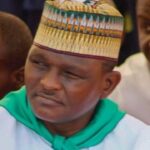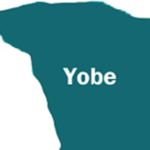* partners private sector to raise more funds for North East
The United Nations Office for the Coordination of Humanitarian Affairs (OCHA) has spent $70million in providing humanitarian assistance in the north eastern states of Borno, Adamawa and Yobe in the last 18 months.
Head of Communications, OCHA, Samantha Newport, disclosed this in Lagos on Thursday while briefing newsmen during the launch of the Nigeria Humanitarian Fund which is a private sector initiative to contribute to the rising humanitarian crises in the region.
Newport said the humanitarian crisis in Northeast Nigeria that had spilled into neighbouring Cameroon, Chad and Niger, was one of the most severe in the world today.
She said, “More than seven million people are affected in the three worst affected states of Borno, Adamawa and Yobe.
“1.8 million people are displaced internally. With other global crises competing for scarce resources, the Nigeria Humanitarian Fund (NHF) – a funding mechanism, was set up in May 2017.
“The NHF is managed by OCHA under the leadership of the UN Humanitarian Coordinator in Nigeria, Mr Edward Kallon. The NHF has raised $70 million from 17 donor countries.”
She said the launch of the fund in collaboration with the private sector in Nigeria was to provide more funds for humanitarian assistance in the north east.
Deputy Secretary-General of UN, Amina Mohammed in a relayed conference message hailed the initiative, saying, “It is personal as someone who grew up in Maiduguri now affected by a crisis that has seen millions displaced and more than 27,000 killed in recent years.
“This creative and generous effort is about leveraging innovative partnerships between the private and public sector to have real impact on the ground,” she said.
Chief Executive Officer of Oando, Dr. Wale Tinubu, said private sector players in Nigeria were determined to contribute their quota to ending the “horrible humanitarian crisis in the North East”.
According to him, 50 percent of the 1.7m people displaced were children; 25 percent under the age of five and 25 percent women. “They are people in need of our support”, he said.

 Join Daily Trust WhatsApp Community For Quick Access To News and Happenings Around You.
Join Daily Trust WhatsApp Community For Quick Access To News and Happenings Around You.


